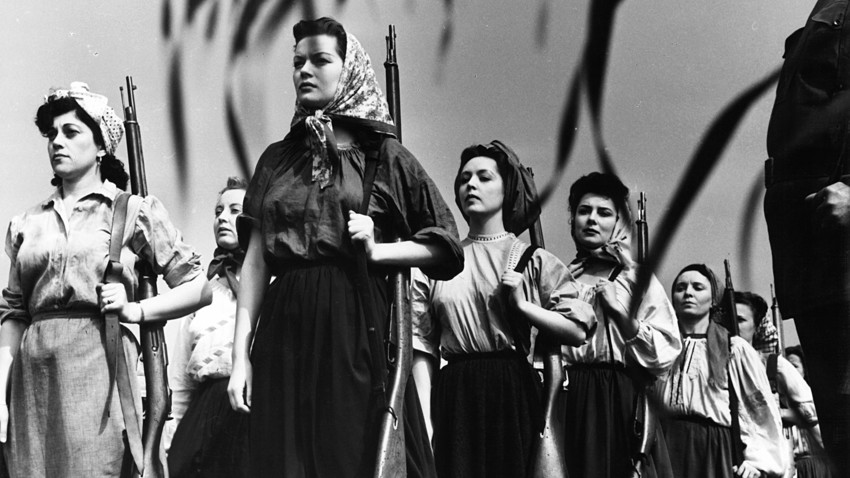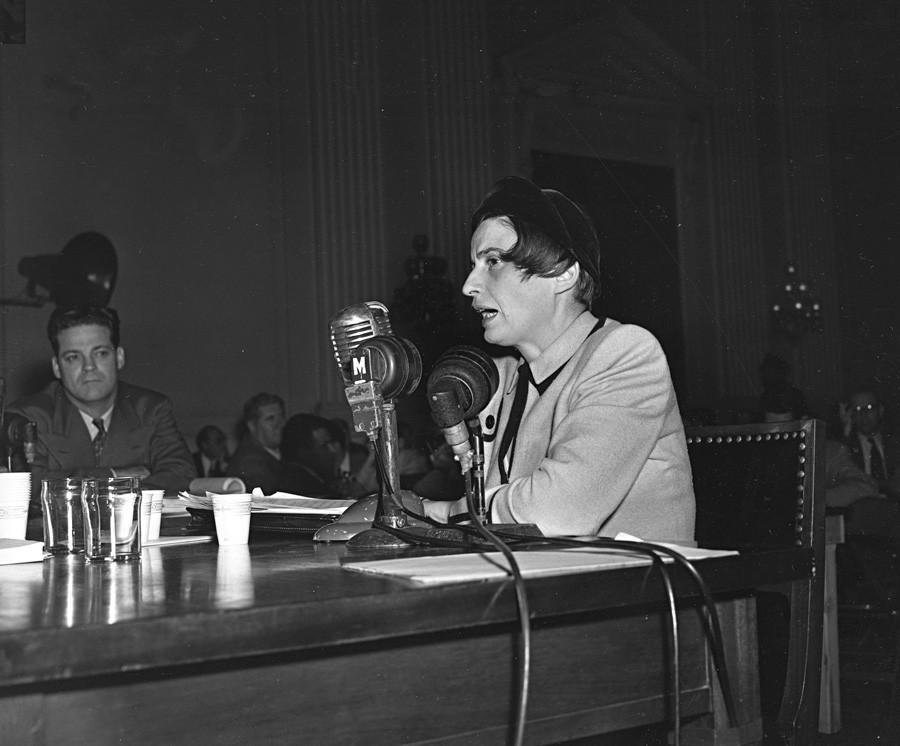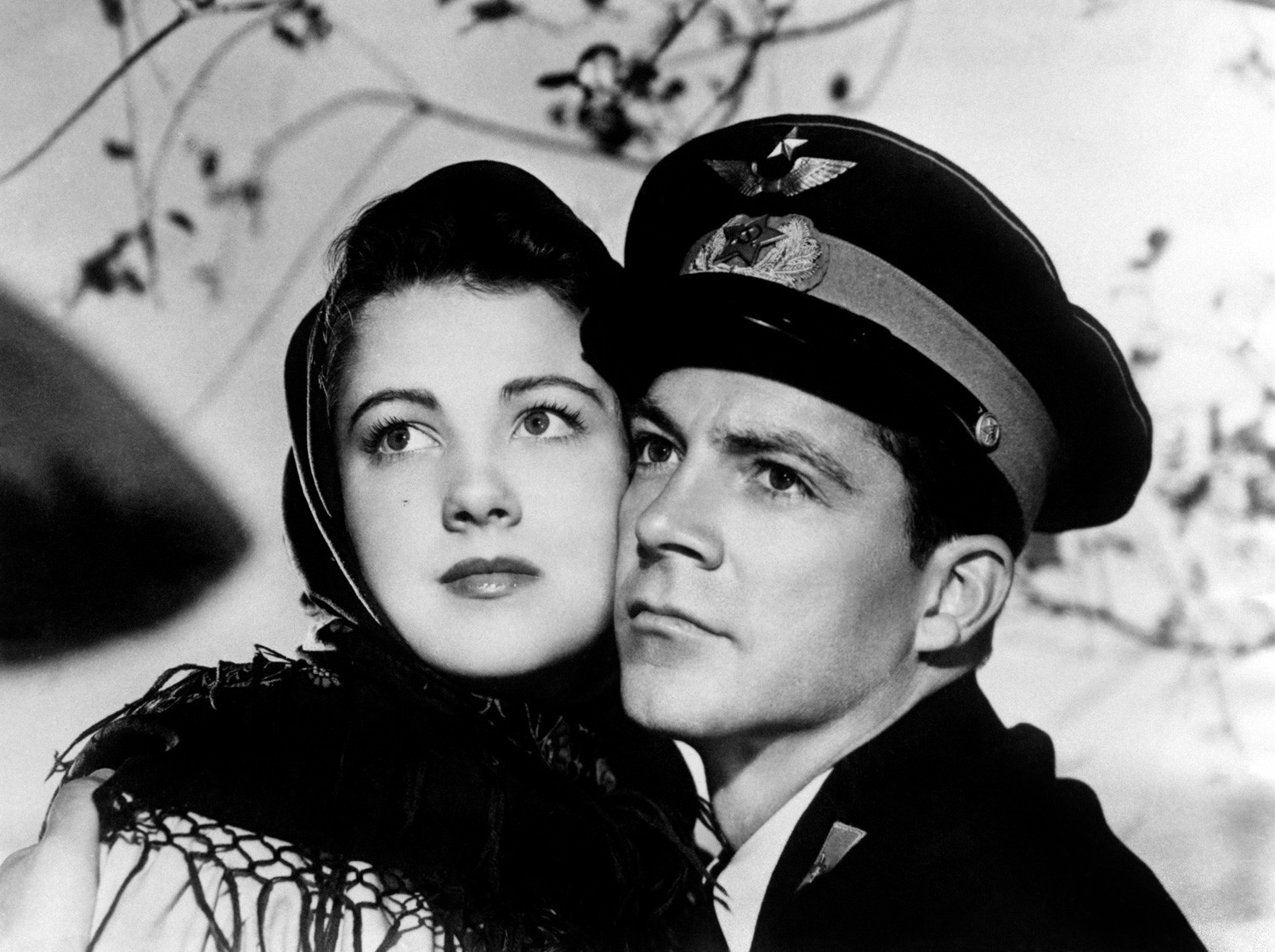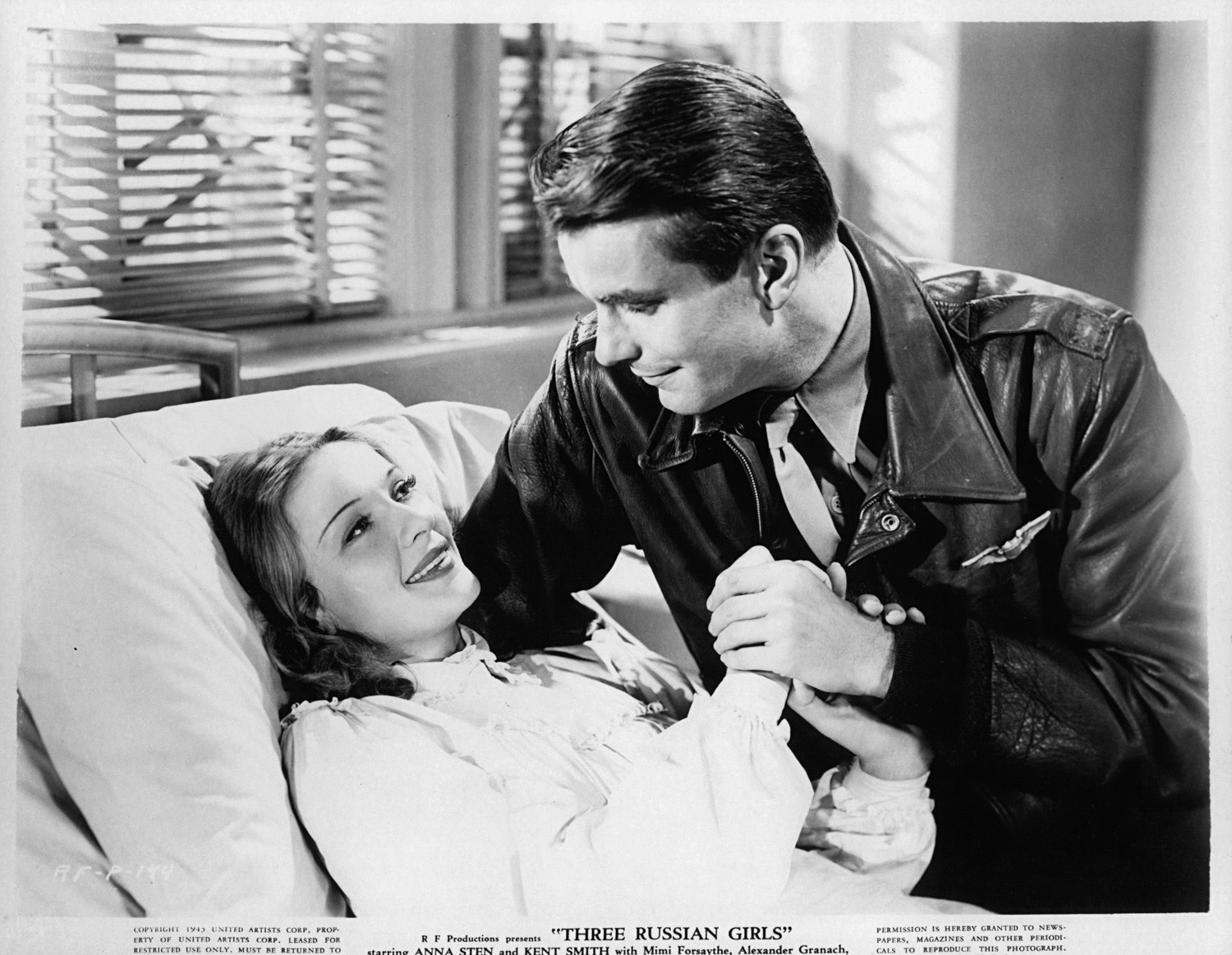
Hazel Brooks leads a group of feminine guerilla fighters in a scene from the film 'Song Of Russia', 1944
Getty Images“That was our complete terror – afraid to look at one another, afraid to say anything for fear of who is listening and would report us – and where to get the next meal. … They [Soviet citizens] have no idea of any pleasant romances or love - nothing but food and fear. ... That is not what the picture shows.”

Rand condemned “Song of Russia” for not showing “fear and hunger” in the Soviet Union
APThis was how Russian-American screenwriter and novelist Ayn Rand (Alisa Rosenbaum) known for her negative attitude towards the Soviet Union, its ideology
One might guess that Rand’s words fell on fertile ground. In those early days of the Cold War, the committee was seriously worried about the notion that Soviet propaganda was at the heart of the US film industry.
Just a few years before, during World War II, the situation in Hollywood has been utterly different; the USSR was a valuable ally in the common war against the Nazis and positive portrayal of the country did not scare anyone and was even considered desirable. Within this context, several films were released that had not been seen before the war and were never seen after.
“Song of Russia” was one such film. A box office hit, it told the story of an American conductor who tours the USSR on the eve of the war and falls in love with
Good box office figures and favorable reviews did not stop the representatives from labeling it a “pro-Soviet” propaganda film. However, “Song of Russia” was not alone here. Two other movies condemned by HUAC were “The North Star” and “Mission to Moscow”.

“The North Star” was made by Oscar-winning director Lewis Milestone
Getty Images “The North Star” was made by Oscar-winning director Lewis Milestone, better known for his 1930 classic anti-war movie, “All
The movie received six Academy Award nominations and had a peculiar “afterlife”. It was severely re-cut and re-released in 1957 under the title “Armored Attack”. This time the story was based on the USSR’s intervention in Hungary in 1956 and was turned into
However, the most pro-Soviet movie was 1943 “Mission to Moscow.” It was made at the request of President Franklin D. Roosevelt and based upon a book by U.S. ambassador to the USSR Joseph E. Davies. The ambassador was the main character of the film. They say that Roosevelt met with Davies several times in the course of the film's production.
The movie starts with the real Davies stating
“Based on 20 years’ trial practice, I’d be inclined to believe these confessions,” the main character says. In his
There were also a few other movies where the USSR

“Three Russian Girls" was another movie where the USSR was portrayed in a positive light
Getty ImagesHowever, following the HUAC activities Hollywood studios responded with movies whose titles were telling enough: “The Red Menace”, “Guilty of Treason” or “I Was a Communist for the FBI”.
Read here about 11 epic fails in Hollywood movies that are related to Russia.
If using any of Russia Beyond's content, partly or in full, always provide an active hyperlink to the original material.
Subscribe
to our newsletter!
Get the week's best stories straight to your inbox